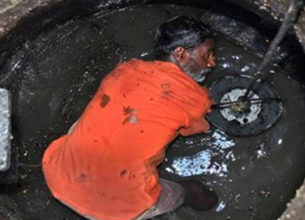RESERVATIONS IN PROMOTIONS FOR SC/ST: AN OVERVIEW
03, Dec 2019

Prelims level : Governance
Mains level : GS-II Welfare schemes for vulnerable sections of the population by the Centre and States
Why in News?
- The Centre on Monday has asked the Supreme Court to refer to a seven-judge Bench the question whether the creamy layer concept should apply or not to the Scheduled Castes/Scheduled Tribes while providing them reservation in promotions.
Current Scenario of Reservations in Promotions in for SC/ST:
- The 2006 verdict on Nagaraj vs Union of India brought in a creamy layer filter for promotions for SC/ST employees.
- Also, the judgement ruled that the state had to collect ‘quantifiable data on backwardness’ of the SC/ST class if it wished to provide reservation in promotions.
- The judgement finally held that when it comes to promotion of SC/ST employees, the court held that the creamy layer concept does Apply.
- So now, only in direct recruitment of the SC/STs, the creamy layer concept Does Not Apply.
Background Information:
- Constitutional basis- Article 335:
- Article 335 recognises that special measures need to be adopted for considering the claims of SCs and STs in order to bring them to a level-playing field.
- Need: Centuries of discrimination and prejudice suffered by the SCs and STs in a feudal, caste-oriented societal structure poses real barriers of access to opportunity. The proviso contains a realistic recognition that unless special measures are adopted for the SCs and STs, the mandate of the Constitution for the consideration of their claim to appointment will remain illusory.
- Significance: The proviso is an aid of fostering the real and substantive right to equality to the SCs and STs. It protects the authority of the Union and the States to adopt any of these special measures, to effectuate a realistic (as opposed to a formal) consideration of their claims to appointment in services and posts under the Union and the states.
- It also emphasises that the need to maintain the efficiency of administration cannot be construed as a fetter on adopting these special measures designed to uplift and protect the welfare of the SCs and STs.
- Indra Sawhney vs Union of India case (1992):
- In its landmark 1992 decision in Indra Sawhney vs Union of India, the Supreme Court had held that reservations under Article 16(4) could only be provided at the time of entry into government service but not in matters of promotion.
- It added that the principle would operate only prospectively and not affect promotions already made and that reservation already provided in promotions shall continue in operation for a period of five years from the date of the judgment.
- On June 17, 1995, Parliament, acting in its constituent capacity, adopted the seventy-seventh amendment by which clause (4A) was inserted into Article 16 to enable reservation to be made in promotion for SCs and STs.
- M Nagaraj case (2006):
- The validity of the seventy-seventh and eighty-fifth amendments to the Constitution and of the legislation enacted in pursuance of those amendments was challenged before the Supreme Court in the Nagaraj case.
- Upholding the validity of Article 16 (4A), the court then said that it is an enabling provision.
- “The State is not bound to make reservation for the SCs and STs in promotions. But, if it seeks to do so, it must collect quantifiable data on three facets:
- 1. The backwardness of the class.
- 2. The inadequacy of the representation of that class in public employment.
- 3. The general efficiency of service as mandated by Article 335 would not be affected.
- This is to provide for reservations in promotions for Scheduled Castes and Scheduled Tribes with consequential seniority.
- “Consequential seniority” refers to promotions made purely on reservation basis despite another person waiting for promotion being actually senior to him/her.
- Jarnail Singh case (2018):
- In2018, a five-judge Bench in the Jarnail Singh case unanimously agreed with a 2006 judgment of another five-judge Bench in the M. Nagaraj case, which had upheld the application of the creamy layer principle in promotions.
- Also the judgment has modified a part of the Nagaraj case verdict which required the States to show quantifiable data to prove the “backwardness” of a Scheduled Caste/Scheduled Tribe in order to provide quota in promotion in public employment.
- The whole object of reservation is to see that the backward classes of citizens move forward so that they may march hand in hand with other citizens of India on an equal basis. This will not be possible if only the creamy layer within that class bag all the coveted jobs in the public sector and perpetuate themselves, leaving the rest of the class as backward as they always were..
What are the Current Concerns?
1. Against Precedence
- It has been clearly stated in Indra Sawhney (1992) case, that any discussion on creamy layer “has no relevance” in the context of SC/STs.
2. Against equal Representation
- Going by the creamy layer ceiling of Rs 8 lakh per annum, even “Group D” functionaries will come under the definition of creamy layer.
- But notably, the SC/STs lack representation mainly at the Group A level which do not have direct recruitment provisions.
- Promotions are the way through which members of SC/ST communities make it to this level.
- So the consequence of the judgement (applying creamy layer in promotions) will be that promotions will stop even at the Group D and Group C levels.
3. Protection
- The SC/STs are given job reservations not because they are poor but because they are excluded.
- The Constitution made the Scheduled Castes and Scheduled Tribes as a separate category of subjects to protect them from caste aggression.
- It was also to help them gain the strength they need to withstand it and to grow autonomously.
4. Article 335
- The first part of Article 335 stipulates job reservations for SC/STs as a right of representation, not as a welfare measure.
- However, the creamy layer among SC/ST employees helps fulfil the second part of Article 335 that requires maintaining the “efficiency of administration”.
- So, the recent judgement largely undoes the affirmative action of ensuring equality of opportunity.
5. Right to opt out
- The court also failed to address this, as at present, an SC/ST candidate does not have the right to reject reservations.
- It is also a punishable offence to withhold one’s caste status while seeking government employment.
- But allowing SC/ST candidates to compete in the general category would help thousands to leave the space for the less privileged among them.
- Also, by competing as non-reserved candidates, the well-qualified SC/ST group would corner a substantial number of open posts (General Category).So theoretically, SC/STs would end up garnering more posts than at present.















